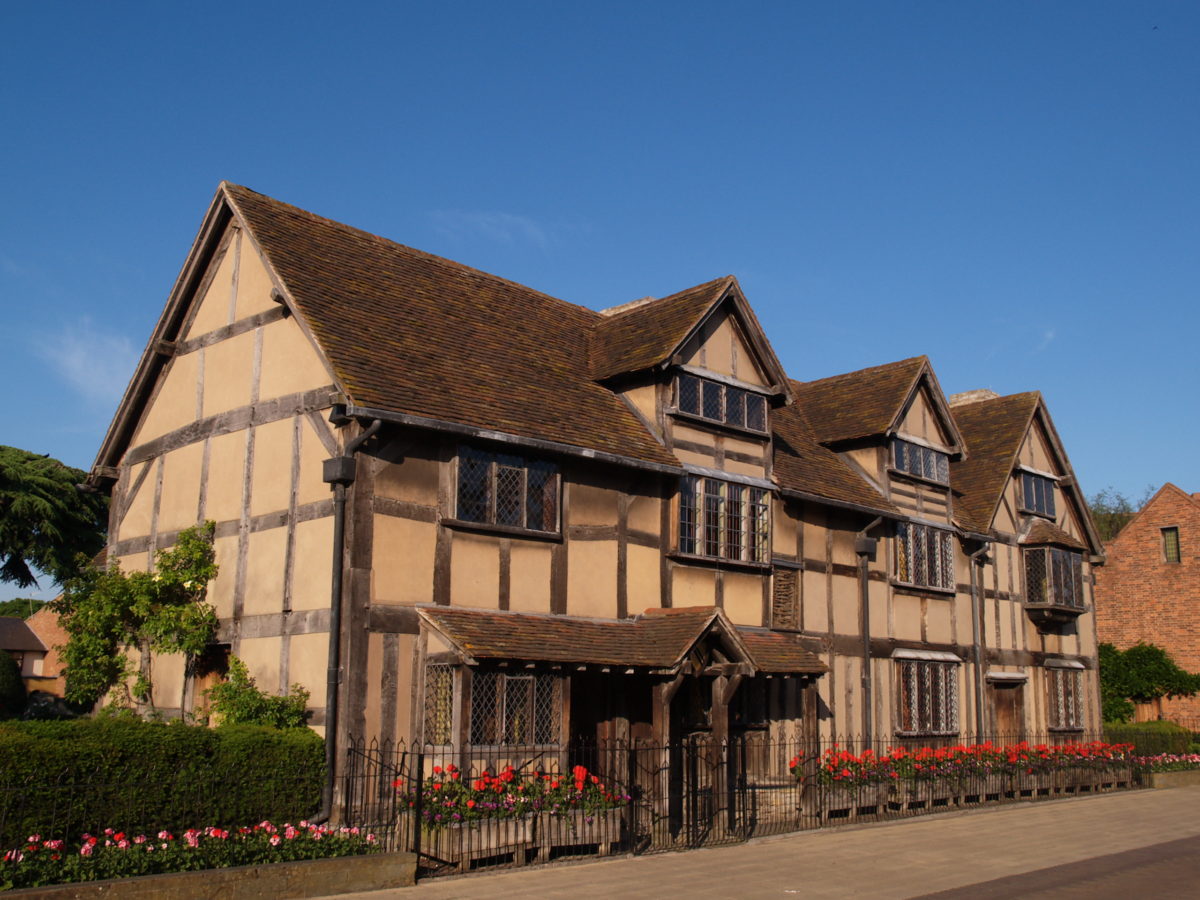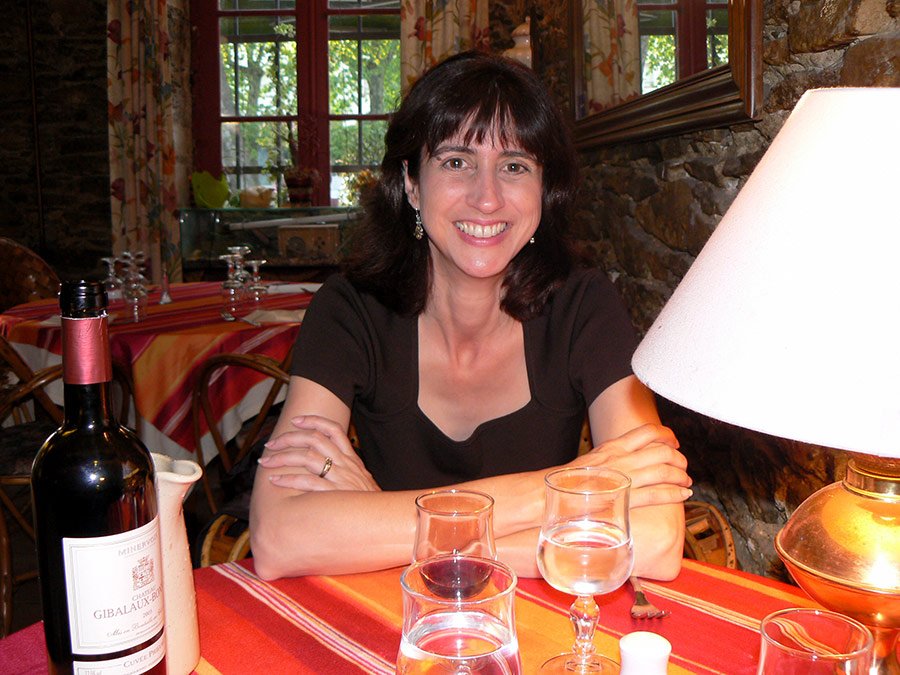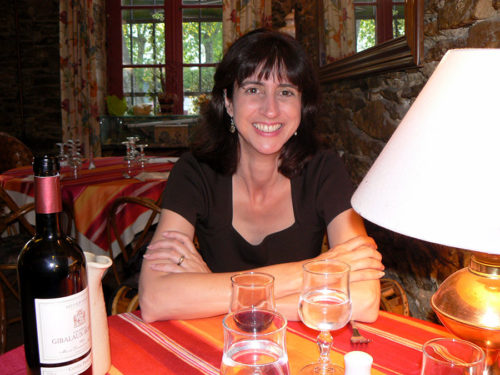In today’s post, I’m re-publishing a review released in 2008 on BlogCritics, which explores Diana Howie’s elegant play, Susanna and Will.
Will the real William Shakespeare ever come forward? Not much chance of that, if only in our imaginations.
The mystery of Shakespeare’s life and career persists. How do we reconcile our image of the absentee husband and father from Stratford-upon-Avon with the prodigious output of the London-based poet and player?
Susanna and Will is an elegant work by playwright Diana Howie, produced in past years by Houston’s Country Playhouse Black Box Productions (now the Queensbury Theatre), as well as Houston’s Main Street Theater. The play imagines the reunion of Susanna Shakespeare and her father, offering satisfying answers to questions that have persisted for centuries about the Bard.
Given that Shakespeare’s sole bequest to wife Ann Hathaway was his second-best bed, exactly what kind of person was she? What was the nature of her and Will’s marriage? How often did Shakespeare return to Stratford to see Ann and their children, Susanna and twins Judith and Hamnet? What kind of relationship did Will have with Susanna, his eldest, principal heir, and presumed favorite?

Howie’s fictional documentary will please both fans and newcomers to Shakespeare. It deftly humanizes the inventor of manuscripts considered as holy today as the Bible was in Shakespeare’s era. And how did the grammar-school educated son of a glover become such a successful, court-sponsored poet and shareholder in London? How did he survive the untimely death of his only son, plague outbreaks that closed the playhouses, and the growing Puritan unrest during his later years?
In the play’s opening scene, Susanna is alone inside Stratford’s Holy Trinity Church, where both of her parents are buried. She gazes lovingly at the pages of the First Folio, the first printed edition of Shakespeare’s plays. Reading aloud from Ben Jonson’s famous dedication, she unwittingly conjures up the spirit of her dead father.
As father and daughter are reunited, it is 1623. The First Folio has been released. Susanna informs Will that she harbors a grudge toward her mother, Ann Hathaway, calling her a “hateful hypocrite.” According to Susanna, Ann’s piety was for show — she was guilty of playing cards secretly, an “idle” pursuit frowned upon by the Anglican Church.
Throughout the two-act drama, Shakespeare’s eldest daughter is imagined as highly literate and something of an actress herself. When I watched the play in 2008 at Country Playhouse Black Box Productions, actress Maria O. Sirgo depicted Ann as fiercely independent, as a woman competent enough to fight a scurrilous accusation of adultery in court and win. John Kaiser’s Will came across as a warm soul — as undebauched, and cool-headed as long-dead witnesses attested.
Together these two take us on a satisfying journey of discovery for Susanna. Stubbornly, she challenges Will to answer questions that have troubled her throughout her life. We glean plausible (albeit fictional) insight into a host of unanswered questions — why Shakespeare refused to follow in his father’s footsteps; how prosperous he was; whether he composed any of his “sugared sonnets” for Ann herself; how the death of young Hamnet (Susanna’s younger brother) affected the family; whether Shakespeare attended Hamnet’s funeral; where Shakespeare went during outbreaks of the plague in London; and why he never moved his family to London.
Through Bonnie Hewett’s clever direction in the above-mentioned production, the show’s two-person cast skillfully transforms the Holy Trinity church sanctuary into a stage. Susanna positions herself behind the lectern and satirizes the role of Stratford preacher in front of her father, to hilarious effect. Wittily and hilariously, Susanna and Will parody the manners and lives of clergy, kings, and others closest to them.
In Act two Hewett’s direction becomes especially astute. Nearly 20 years have passed since Susanna first conjured Will. It is 1642, and Oliver Cromwell’s Parliament is at war with King Charles. Susanna is old and gray, stiff and forgetful. She scurries about the Church, frantically searching for a place to hide her prized (and highly valuable) Second Folio edition of her father’s plays. She fears the valuable book will be confiscated by Queen Henrietta’s men.
For Will, who returns to Susanna in Act two as she quotes the Weird Sisters in Macbeth, the journey with Susanna is both personal and historical. Father and daughter entertain one another through diatribe and raucous impersonations. We watch these antics in the context of the Puritan revolution and the declining prosperity of the English. During Will and Susanna’s reenactment of King Charles’ and Queen Henrietta’s reign, they also revisit lines and snippets from Shakespeare’s plays — A Midsummer Night’s Dream, Romeo and Juliet, and Henry VI. Hewett’s engagingly directed show fully realizes the playwright’s extremely well-written fictional biography.
# # #
This review in its original form is published at Medium.com.

Consider me a professional interpreter of William Shakespeare for intelligent readers who never warmed up to the world’s greatest playwright in high school or college. I delight in helping modern readers and audiences translate iconic texts, especially antiquated dramatic works that were meant to be experienced inside the theatre.

